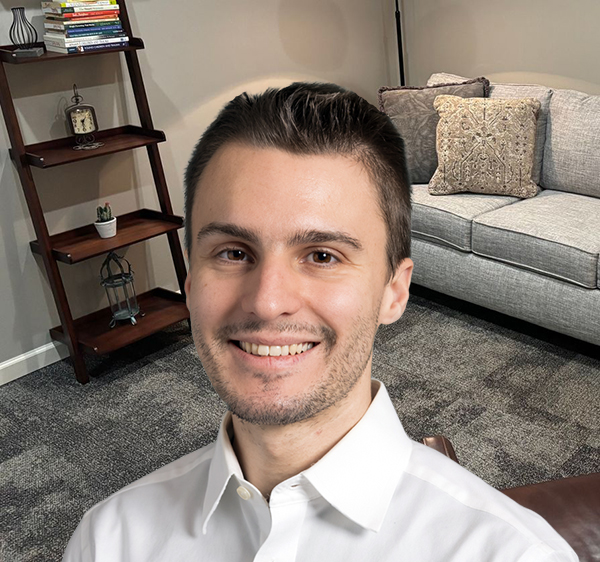If you feel overwhelmed by the process of choosing the right mental health professional for your needs, the following resource is meant for you. Consider it A Guide to the Mental Health Universe, if you will. It contains the most common mental health professionals you will encounter while browsing directories like Psychology Today. Rather than overwhelm you with information, however, this guide will help to distill this needlessly arcane knowledge into simple, practical terms that will help you find the right professional for the job.
Scene: You’ve been coping in every way you know how. You’ve listened to podcasts. You’ve downloaded all the apps to help you stay organized, motivated, and mindful. You’ve read the self-help books. You’ve thought about your relationships and curated your environment with intention.
Yet, something feels like it’s missing. Your mood feels beyond your control. You struggle to focus. You’re tired all the time. While you constantly remind yourself that your past doesn’t define you, its shadow remains a lurking presence, coloring your perceptions, impacting your romantic life, and keeping you disconnected.
You finally decide to look into this therapy thing, and you think it’ll be easy to make a phone call and set up an appointment. But—oh? Suddenly, you realize it isn’t as simple a process as it should be. You find yourself navigating directories that feel like dating apps, waitlists, insurance networks, therapists who don’t respond to inquiries, and the endless alphabet soup of credentials that leave you wondering, “Where do I even start? What type of therapist do I need? Is it even worth the headache?”
So, let’s get to it. The first thing we need to do is bring a couple of terms out into the open that all mean the same thing: therapy, talk therapy, counseling, and psychotherapy do not refer to separate services. These days, many educational and licensing pathways can train mental health professionals to provide what essentially amounts to evidence-based talk therapy. These terms are not protected, which means their use is not the property of any one specific type of professional. That doesn’t mean that every professional is equivalent, though.
Let’s review some of the most commonly encountered types of mental health professionals and what they offer.
Master’s Level Therapists
Among the most common mental health professionals to provide therapy are clinicians with master’s degrees, such as licensed professional counselors (LPCs), licensed clinical social workers (LCSWs), and licensed marriage & family therapists (LMFTs). (Note: different states within the US award licenses slightly differently, and so these credentials may look a bit different depending on where you live.)
These professionals are all trained to provide therapy and to diagnose conditions within their clinical competence. They are often found in settings such as counseling agencies, hospitals, community mental health centers, and private practices. They are trained to work with a wide variety of mental health issues, though many choose to pursue more advanced training in specialized areas.
While these professionals receive slight differences in terms of training, these nuanced distinctions are far less impactful for clients than specific questions you might ask them regarding their services and experience. (See section below, entitled In Summary: Finding a Mental Health Professional.)
Clinical Psychologists
Clinical psychologists have doctoral-level education (PhDs and PsyDs). Like other therapists, they are trained to diagnose and treat a wide variety of mental health issues. However, due to their more in-depth training in psychological assessment, they are qualified to implement more advanced forms of clinical interviewing and testing. For example, psychologists are qualified to diagnose complex issues such as neurodevelopmental disorders like autism and ADHD, personality disorders, and, in some cases, disorders impacting neurological functioning.
Many psychologists also provide therapy to their clients, although some prefer to specialize in assessments and consulting, or working in forensic environments in conjunction with courts. It is common for a client to be referred to a psychologist by another mental health professional when a formal, in-depth, documented diagnostic procedure is required, for example. This is not to say that psychologists are the only mental health professionals who can diagnose, but rather that providing detailed, accurate diagnoses of complex issues is well within their clinical scope.
Psychologists, however, are not qualified to prescribe psychiatric medications in most states. That role belongs to our next professional…
Psychiatrists and Psychiatric Nurse Practitioners
Psychiatrists are doctors of medicine (MDs) who are trained in the medical model to treat mental health issues using medication. While many clients, especially those who are new to mental health treatment, are initially hesitant to consider medication management services, psychiatry is a critical branch of the mental health field. Indeed, for many mental health issues, medication, therapy, or a combination of both may be the most effective treatment. (For more information on how to choose between medical versus psychotherapeutic interventions, the American Psychological Association provides some good info.) Medication plays a vital role in helping many clients struggling with mental illness, and, contrary to existing stigma, is not only for the most severe cases.
In addition to their training in medication management, psychiatrists and psychiatric nurse practitioners are trained to provide talk therapy. Many, however, prefer to specialize in medication management and refer to other mental health professionals for talk therapy.
In Summary: Finding a Mental Health Professional
Now that we’ve clarified some different roles within the mental health field, here are a couple of ideas that can help you get started in your quest.
- Browse a site like Psychology Today to search for professionals in your area. If you have a specific issue or type of therapy you’re looking for—like trauma or couples counseling—feel free to use the available search filters to refine your results.
- If you’re a student on a college campus, check if your school offers free counseling services. Many universities offer free or reduced-rate therapy for students.
- Once you find a professional who seems like a good fit, reach out to them to check if they offer a free consultation. Many therapists do, and it can be a great opportunity to learn about them, see whether you would be comfortable talking to them, and ask questions. Here are some questions to ask a therapist:
- What types of issues do you specialize in treating?
- What age ranges do you work with?
- What is your rate, and do you take my insurance?
- Are you local if I am interested in in-person therapy?
- Do you offer telehealth?
- If you decide to set up a therapy appointment, try not to stress too much about what you will discuss or whether you will be ready to delve into difficult topics. Therapists expect the process of feeling safe and secure in the therapy room to take time. Go at your own pace, and if you feel rushed, that is an excellent sign to keep looking for a better fit.
- Understand that the first session is like a test drive. If you walk away feeling in your gut that it isn’t a good fit, trust yourself! There is no shame in continuing to look for a better match. In that case, therapists are often more than happy to help you find the best fit possible, so don’t shy away from asking them if they know somebody who might be more in line with what you’re looking for. Many therapists have access to referral networks and other professional relationships that can benefit you; don’t miss out on this resource!
Final Thoughts
So there we have it: a practical guide to get you started. Be brave, be persistent, and know that the right help is out there. Finding the right support, like finding any good relationship, can take time. Your efforts, however, will be rewarded.
This blog contains the views of Alex Thomson and is intended as educational content. It is not a replacement for therapy or formalized diagnostic assessment. Read full Disclaimer.
Alex Thomson is a licensed associate professional counselor in the state of Georgia and a certified trauma professional. He provides counseling services through Exhale Counseling Services in Acworth. He is supervised by Jennifer Wells, LPC, CPCS [LPC: 008961, CPCS: 4183].


